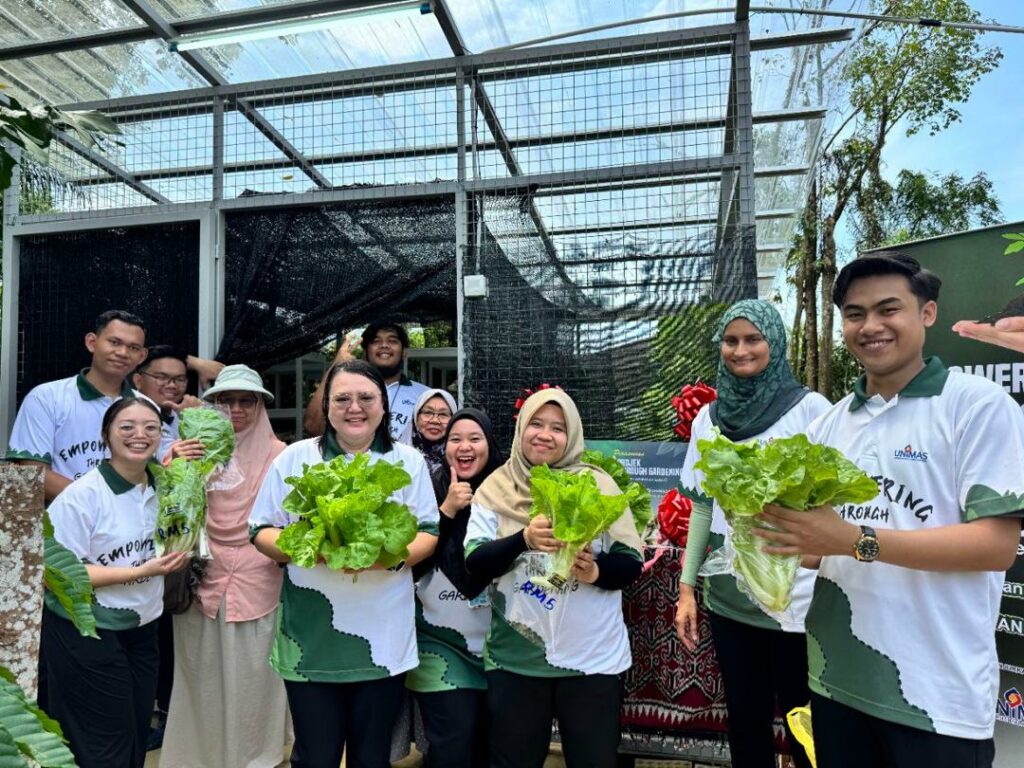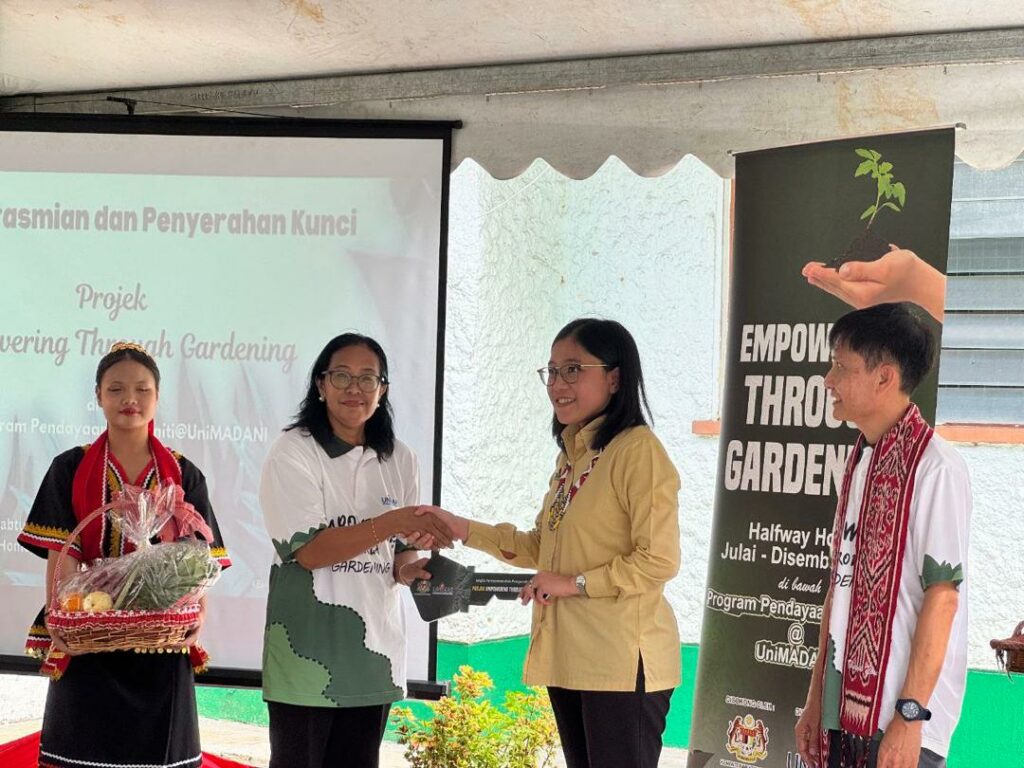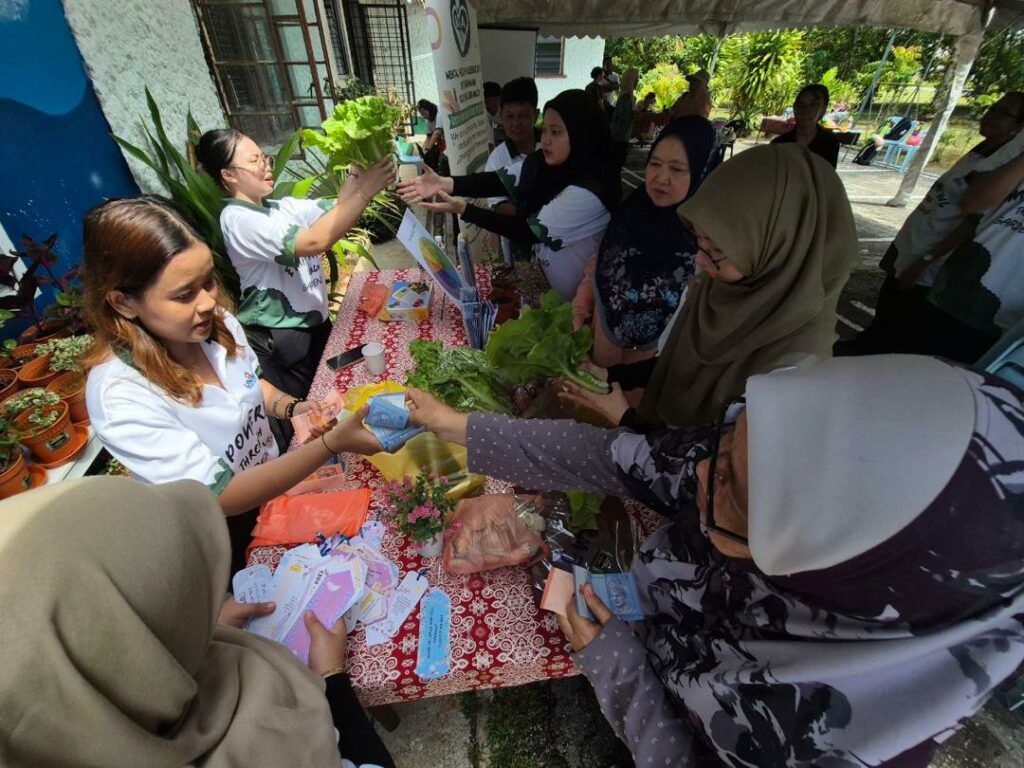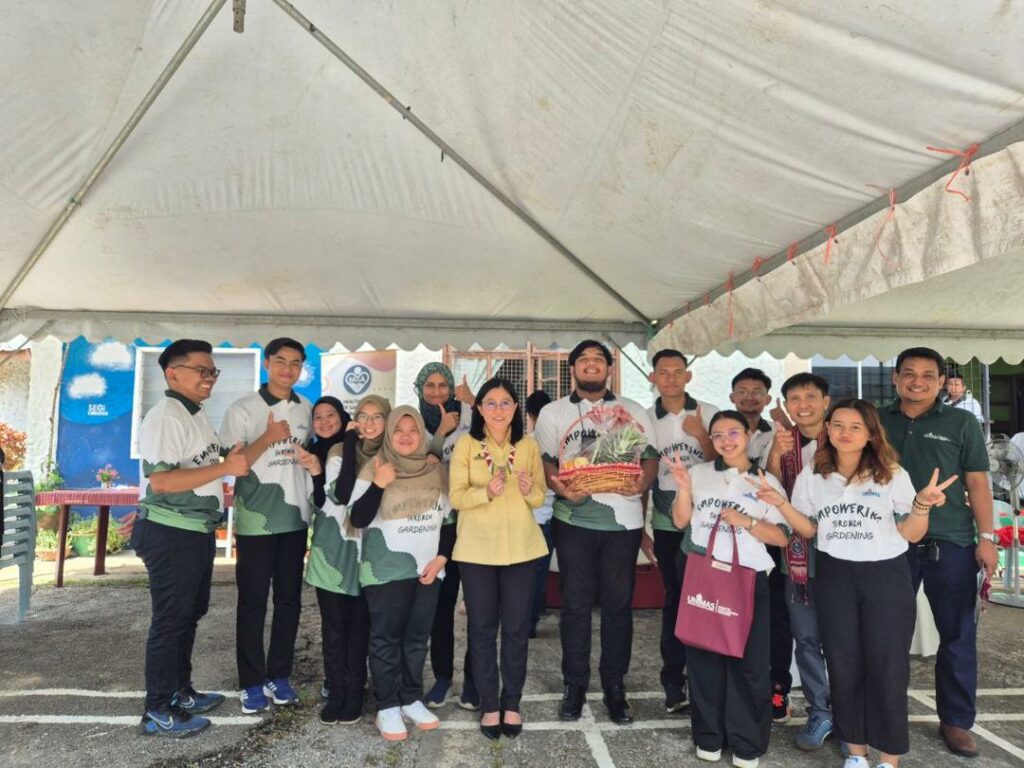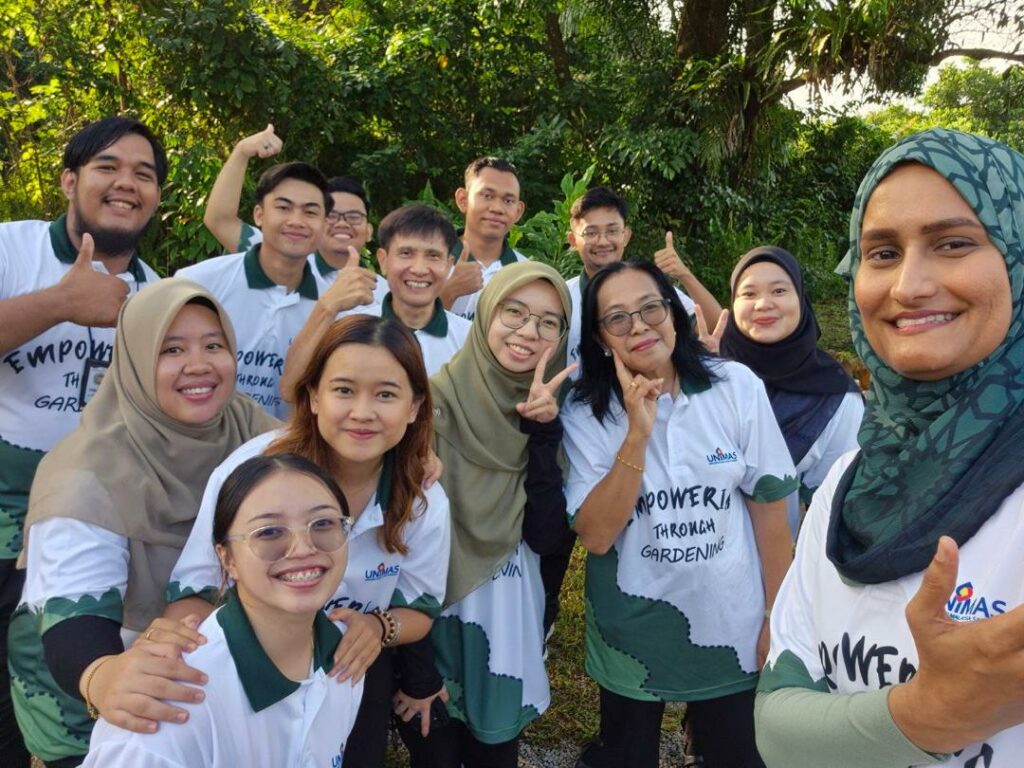Written by: Dr Dolly Paul Carlo (Project Head of “Empowering Through Gardening”)
In February 2024, the call for proposals for the Program Pendayaan Komuniti Universiti Awam (Komuniti @ UniMADANI) Phase 2 was announced. Dr Dolly Paul Carlo, a Senior Lecturer in the Social Work Program at the Faculty of Social Sciences and Humanities, Universiti Malaysia Sarawak (UNIMAS), seized the opportunity to submit a proposal. Dr Dolly selected the Halfway Home of the Sarawak Mental Health Association in Kuching, Sarawak, as the focus of his project, driven by his passion for mental health and community empowerment.
Neither an agriculturist, an architect, nor an engineer, Dr Dolly’s approach is grounded in the community work paradigm of social work – bringing heart, head and hands to a holistic development of individuals through engagement, values, and skills in a community context. His project, “Empowering Through Gardening,” was developed to empower participants through hands-on gardening activities that promote both personal and communal growth. The initiative was approved by the Ministry of Finance in early July 2024, marking the beginning of the project’s implementation under the Komuniti @ UniMADANI Phase 2 funding.

The project, which runs from July 1, 2024, to December 31, 2024, at the Halfway Home in Kuching, includes the establishment of a greenhouse, where hydroponic vegetables, oyster mushrooms, and ornamental plants are cultivated with the active participation of the residents and staff. Beyond the physical work of setting up the gardening spaces, the project also involves a series of workshops and cooperative activities designed to foster empowerment and identity development among participants.
The objectives of the “Empowering Through Gardening” project are:
- To engage Halfway Home residents in active, meaningful participation through gardening activities, fostering a sense of accomplishment and self-efficacy.
- To generate income from the sale of gardening, demonstrating the residents’ capabilities and contribution to the community.
- To reduce stigma and discrimination associated with mental health issues.
- To promote the social inclusion of individuals with mental health conditions.

This initiative rests on Dr Dolly’s belief that gardening, while seemingly a simple activity, can be a powerful tool for social change. By involving marginalized individuals in the process, the project aims to enhance social cohesion, improve individual well-being, and empower the participants. Gardening as a social work intervention aligns with core principles of empowerment, self-efficacy, and collective growth.
The project’s development and impact have been carefully documented, offering a comprehensive analysis of its methodology, challenges, and successes. The findings contribute to a broader understanding of community-driven empowerment and provide a model that can be adapted and replicated in other contexts. Furthermore, it highlights the importance of academic research in advancing social work practice and informs policymakers, researchers, and practitioners about the value of community-centered approaches.

I would like to express my heartfelt thanks to all who have supported and participated in the “Empowering Through Gardening” project. Your commitment has been integral to its success. I extend my deepest appreciation to the Program Pendayaan Komuniti Universiti Awam (Komuniti @ UniMADANI) Phase 2 under the Ministry of Finance (Malaysia) for their visionary leadership and financial support, which laid the foundation for this initiative.
Special thanks to the University Sustainability Centre (USC) at UNIMAS for their commitment to sustainability and community engagement, which has been essential to the project’s success. I also express my gratitude to the Dean, Deputy Dean (Industry and Community Engagement), and the faculty members of the Faculty of Social Sciences and Humanities, UNIMAS for their unwavering support.
My deepest thanks go to the Sarawak Mental Health Association, particularly the Halfway Home staff and Manager, Puan Remi ak. Inggor, for their logistical support. The active participation of the Halfway Home residents has been central to the project’s outcomes.
I also wish to thank those who provided expert guidance on hydroponics and mushroom cultivation, and those who contributed to the construction of the greenhouse, especially Tuan Hj. Morshidi Bin Hj. Ramli and Mr. Voon Boon Onn.
I am also grateful to Dr. Athirah bt Azhar (team member) for her dedication to the project, as well as the students from the Social Work Program who participated in the inauguration and key handover ceremony. I would also like to acknowledge the personal support of my family, particularly my wife and children, whose encouragement has been invaluable.
Finally, I express my gratitude to all community participants whose enthusiastic engagement has been instrumental in shaping the success of the project. I am thankful to God for granting me the opportunity to lead and complete this project, which was made possible by the funding from the Ministry of Finance.
The formal inauguration and key handover ceremony, held on Saturday, November 2, 2024, at the Halfway Home, is not the conclusion of this project, but rather the continuation of a process. I hope this initiative will evolve and expand, with ongoing involvement from all stakeholders.
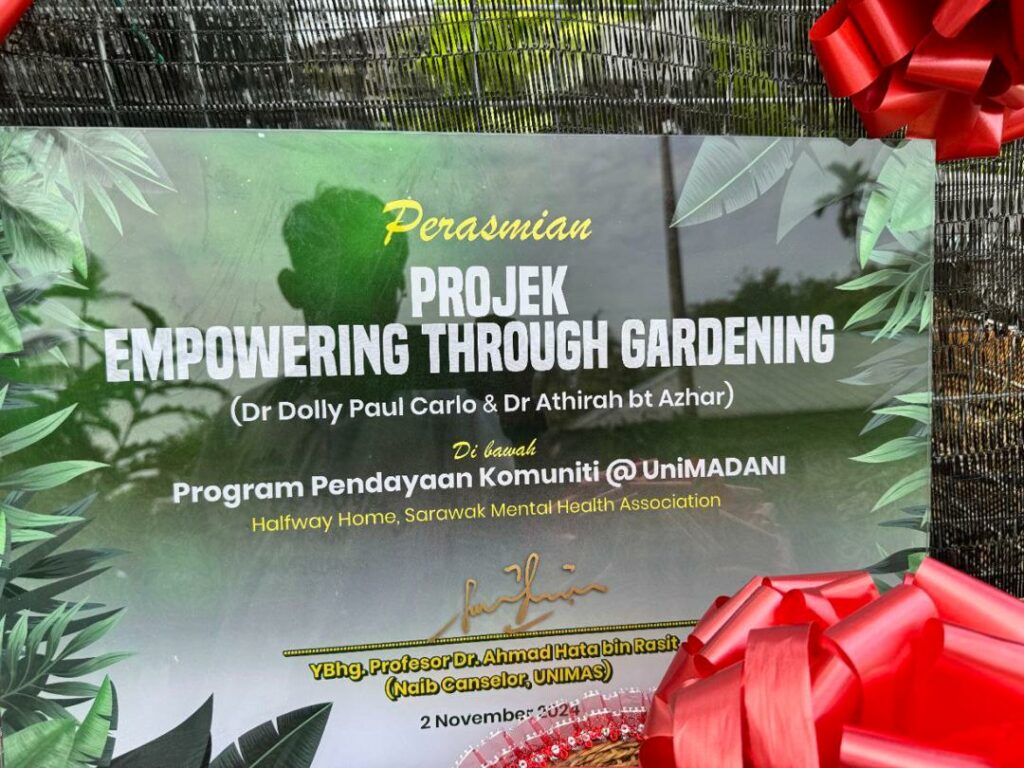
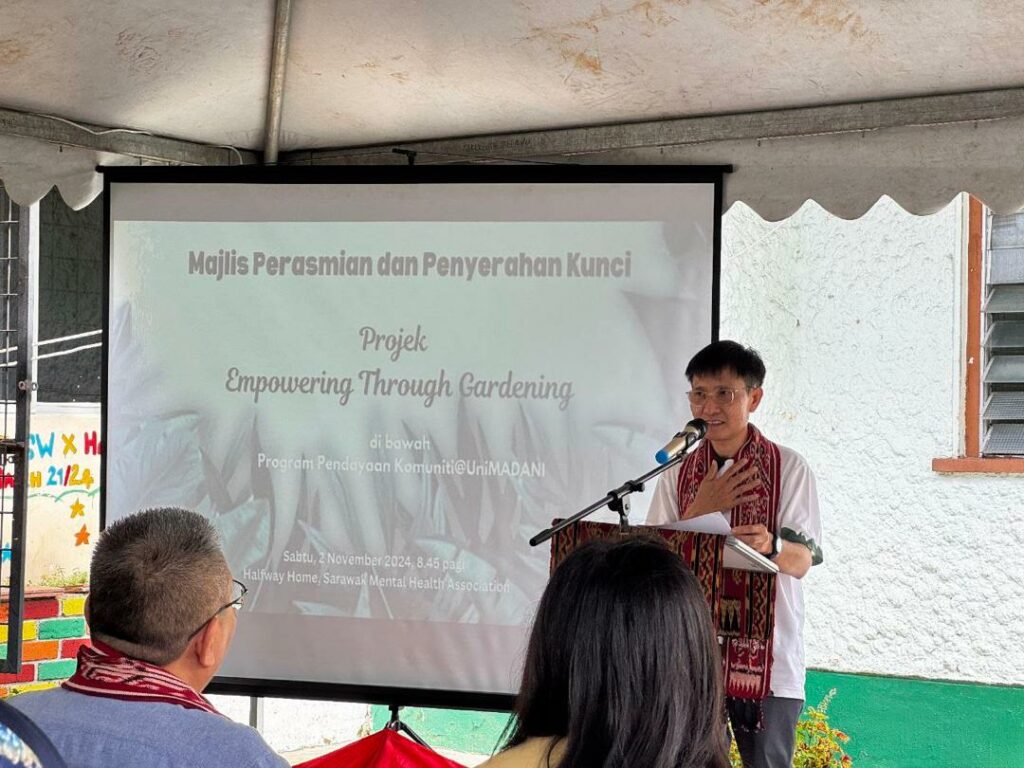
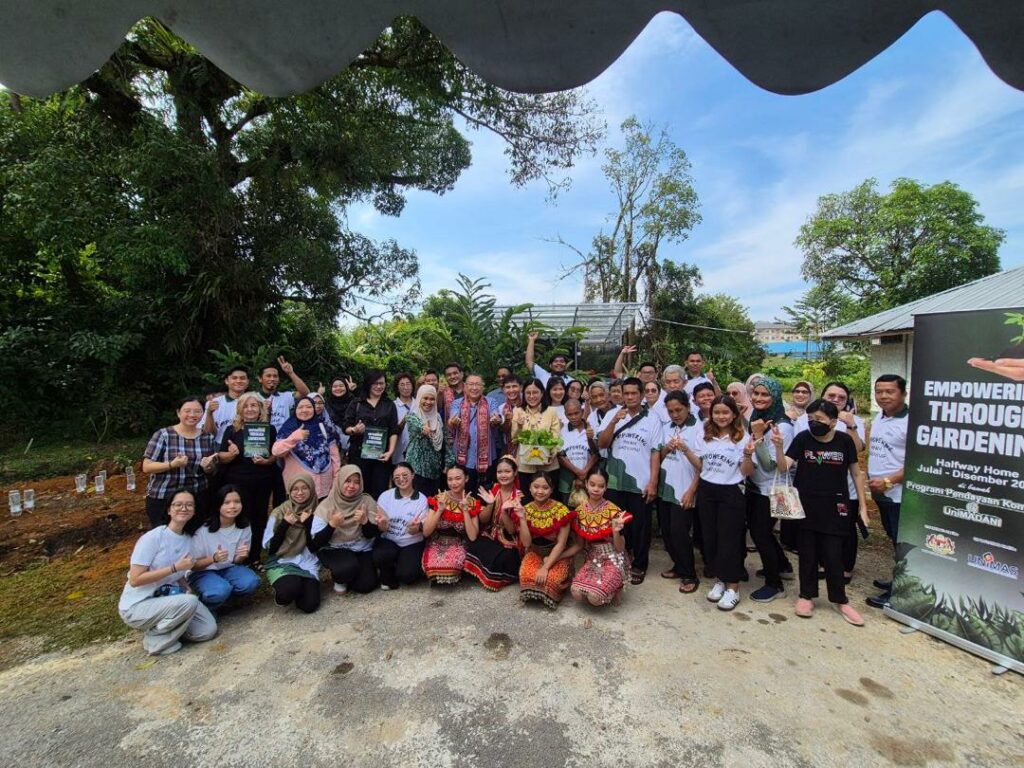
My sincere thanks to Dr. Kiky Kirina Hj Abdillah, Dean of the Faculty of Social Sciences and Humanities, for officiating and handing over the key of Project Empowering Through Gardening to the Halfway Home manager, Puan Remi ak. Inggor. The event also attended by invited guest such as YBhg. Dato Wee Hong Seng (Mayor, Council of the City of Kuching South and as an advisor of Sarawak Mental Health Association), Dr Rosliwati Md Yusoff (Kota Sentosa Hospital Director), Dr Mohd Farid bin Atan (Deputy Director, University Sustainability Centre, UNIMAS) and many others.
